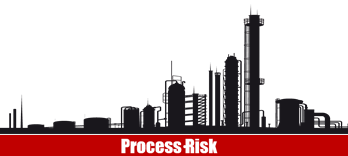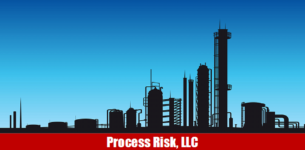Quantitative Risk Assessment
ConsultingQuantitative Risk Assessment (QRA) is a tool for companies that are looking to improve their safety management systems beyond the primary analysis provided by a PHA or LOPA.
QRA involves the combination of accident consequences and probabilities into various risk measures including indices, individual risk, and societal risk. Results of the analyses are presented as point estimates, risk contours, or frequency-number (F-N) curves. Usually, the risk measures are compared with risk tolerance criteria such as limit lines. Risk sensitivities, importances and uncertainties are also evaluated so they can be considered in decision making. QRA is used by companies in several ways including analyzing and ranking scenarios identified in process hazard analysis (PHA), providing quantitative data for use in decision making on risk, and comparing alternative process design options.
Details
Services offered:
- hazard identification (HAZID);
- accidental release scenario development;
- frequency analysis (Event Tree/ Fault Tree);
- consequence models for fire, explosion and toxic vapor dispersion;
- cost-benefit analysis;
- presentation of risk results (individual risk, societal risk, financial risk, business risk).
A project overall includes calculations of scenario probabilities and consequences to determine scenario risk. All results are provided in a report that documents the results of the calculations.
Other Information
Increasingly, companies recognize that reliance on purely qualitative risk analysis is insufficient where high consequence, low probability accidents are concerned. Qualitative risk estimates are subjective. Quantitative analysis provides a sounder basis for decision-making regarding the tolerability of the risk of catastrophic accidents.
Consulting Services
Consequence Modeling
Due Diligence Support Dust Hazard Analysis and Management
Dust Hazard Analysis and Management
Emergency Response Programs
Expert Technical Witness - Legal Support Services
Facility Siting & Consequence Modeling
HAZID
Hierarchy of Controls Analysis (HCA)
Human Factors Review and Analysis
Incident Investigation
Inherently Safer Technology
Layers of Protection Analysis
LNG Industry Support
Management of Change (MOC) - Process and Organizational Change Assessment
Mechanical Integrity
NEP Compliance Support all Industries
Procedure Development and Enhancement
Process Hazard Analysis (PHA)
Probability Modeling
Project Support and Process Integration
PSM / RM Program Enhancement and Optimization
PSM / RMP Auditing
PSM Program Development
Quantitative Risk Assessment
Risk Management Program (RMP) Support
Safeguards Protection Analysis (SPA)
Safety Instrumented Systems (SIS)
Safety Management Systems
Simultaneous Operations (SIMOPS) Review

